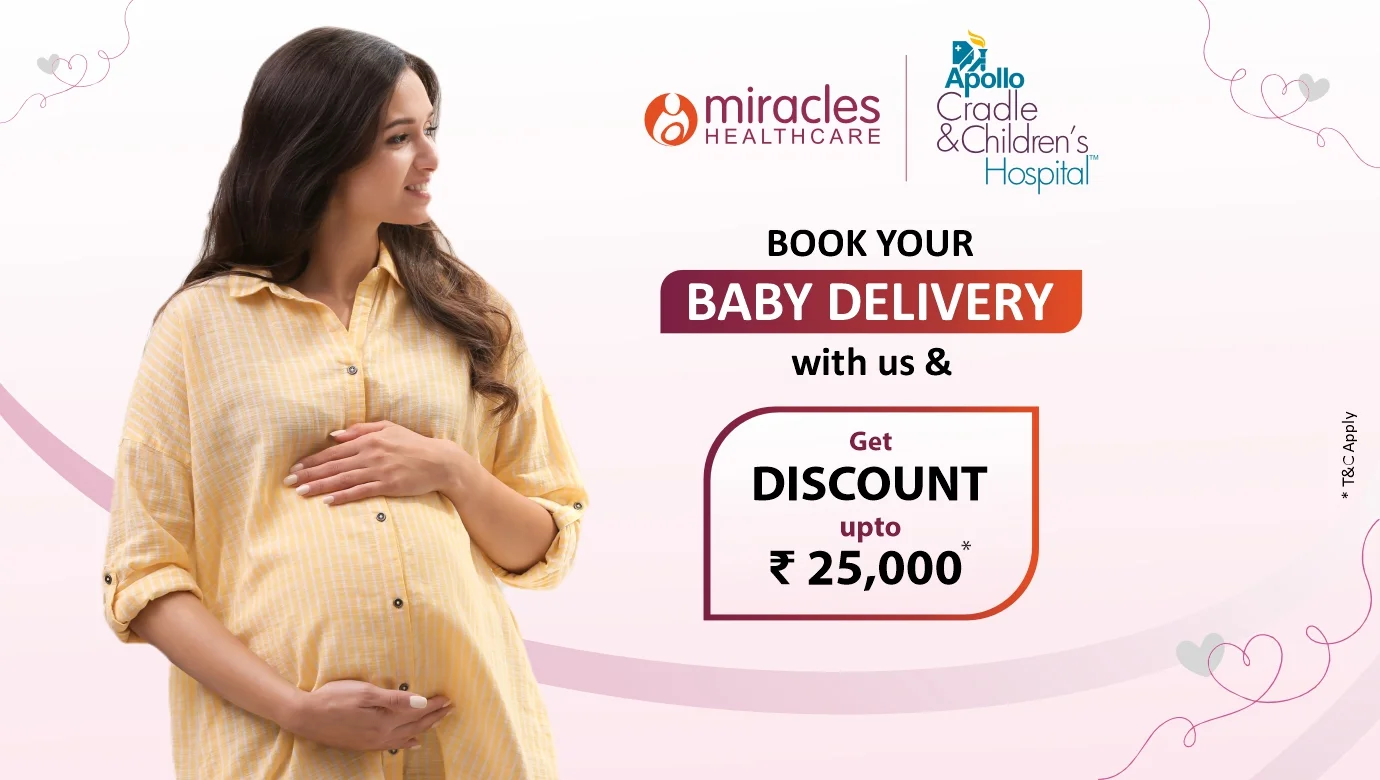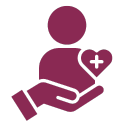Gynaecology Conditions We Treat
Comprehensive Care for Your Health

Chronic pelvic pain (CPP) is a continuous pain in the pelvic area that lasts for at least six months. This complex and challenging condition can affect both men and women. It requires a complete evaluation to diagnose and treat the pelvic pain.CPP is considered a form of chronic pelvic pain syndrome.
Miracles Healthcare is the one-stop solution for chronic pelvis pain. The hospital has a team of highly experienced and qualified doctors who specialize in chronic pelvis pain(CPP). They are well-versed in the latest treatment techniques and can provide you with personalized treatment including medications, physical therapy, injections, and surgery. The doctors at Miracles Healthcare will work with you to develop a treatment plan that is right for you based on the severity of your pain and your individual needs.
The symptoms of CPP can vary from person to person. Some common symptoms include:
Lower abdomen pain
Pain in the pelvic region
Frequent Urination
Pain during and after sexual intercourse
Pain while urination
Pain while sitting
Pain during bowel movements
Bloating
Fatigue
Difficulty concentrating
Depression and many more
Symptoms of Chronic Pelvic Pain in Males: Aside from the common symptoms, males with chronic pelvic pain(CPP) may experience the following symptoms such as:
Genital pain
Erectile difficulty
Post-ejaculatory pain
Symptoms of Chronic Pelvic Pain in Females: Women with chronic pelvic pain may experience discomfort in the lower abdomen. Apart from the common symptoms, they may experience symptoms such as:
Vaginal bleeding
Vaginal discharge
If you are experiencing chronic pelvic pain(CPP), it is important to see a chronic pelvic pain doctor near you to rule out any underlying medical conditions. Once a complete diagnosis is done, your doctor develops customized a treatment plan for you.
Chronic Pelvic Pain can be caused by a variety of factors. However, in the case of idiopathic CPP, the causes of CPP are unknown.
Some of the causes of chronic pelvic pain(CPP) include:
Endometriosis: It is a medical condition in which the tissue that normally lines the uterus grows outside of the uterus.
Pelvic Inflammatory Disease (PID): It is an infection of the female reproductive organs.
Adenomyosis: A medical condition in which the endometrial tissue grows into the uterus muscle wall.
Interstitial Cystitis/Bladder Pain Syndrome (IC/BPS): A chronic medical condition that causes bladder pain and pressure.
Fibroids: It is a noncancerous growths that develop in the uterus.
Ovarian Cysts: It is a fluid-filled sacs that develop on or inside the ovaries.
Irritable Bowel Syndrome (IBS): A health issue that affects the large intestine.
Constipation: Difficulty passing stool.
Vulvodynia: Pain in the vulva, the external female genitalia.
Postpartum Pain: Pain after childbirth.
Myofascial pain Syndrome: A chronic pain condition that affects the muscles and connective tissues.
Nerve Pain: It is a pain that is caused by damage to the nerves.
Psychological Factors: Stress, anxiety, and depression are psychological factors that all contribute to CPP.
If you are experiencing CPP, it is important to see a doctor at the best chronic pelvic pain treatment hospital near me to rule out the causes of chronic pelvic pain and effective treatment.
If you are experiencing the symptoms of pelvic pain syndrome, to diagnose the causes of chronic pelvic pain, your doctor will first ask about your symptoms, and medical history and conduct a complete physical examination to determine the cause of CPP.
During the physical examination, your doctor will gently touch your lower abdomen and pelvic regions' organs to check for the severity of pain and sensitivity. Your healthcare provider may also perform a pelvic examination to inspect the reproductive organs.
Along with the physical examination, some diagnostic procedures are needed to diagnose the causes effectively. The diagnostic tests may include:
Blood Tests
Urine Tests
Stool Tests
Pregnancy Tests(Especially for the female of reproductive age)
Vaginal or Penile Culture Test
Abdominal X-ray
Pelvic X-rays
Pelvic Ultrasound
Laparoscopy
Hysteroscopy
Lower Endoscopy
CT/MRI Scan of Your Abdomen and Pelvis
Cystoscopy
Colonoscopy
If the doctor is unable to find an underlying medical condition after a thorough evaluation, then the doctor may diagnose you with idiopathic CPP. Once the diagnosis has been completed, your doctor will work with you to develop the best possible treatment plan for you.
There are various treatment options available for chronic pelvic pain (CPP). The best treatment will depend on the underlying cause and severity of your symptoms.
Treatment options for CPP include:
Medication: Over-the-counter pain relievers and muscle relaxants are used to get rid of mild and severe pelvic pain and muscle relaxation.
Physiotherapy: Physical therapy is used to strengthen the pelvic and abdomen muscles to help reduce pain, and improve your flexibility and range of motion.
Surgery: Surgical procedures for CPP may be recommended for female patients with endometriosis, fibroids, or pelvic adhesions. The surgical option for chronic pelvic pain treatment for males may be recommended for those with prostatitis or epididymitis.
Intervention Pain Management: Intervention pain management procedures can be used to deliver pain medication directly to the source of the pain.
Lifestyle Modification: Lifestyle modification, such as exercise, stress management, and a healthy diet, can also help manage chronic pelvic pain(CPP).
If you have CPP, it is important to consult the doctor at the best chronic pelvic pain treatment hospital near you to develop a treatment plan that is right for you. As per your health condition, the doctor may recommend a combination of treatments to get the best results.
There is no sure way to prevent chronic pelvic pain (CPP), but there are some things you may do to reduce your risk of developing CPP. These include:
Maintain a Healthy Weight: Obesity or excessive weight can put extra pressure on muscles and organs in the pelvic region, which may lead to chronic pelvic pain.
Exercise Regularly: Regular exercise helps to strengthen the muscles in your pelvis and abdomen, which may help to prevent CPP.
Eat a Healthy and Balanced Diet: Eating a healthy and balanced diet can help to improve overall health.
Avoid Triggers: Certain foods, activities, or situations may trigger the CPP pain. So, it is important to talk to your doctor about the CPP triggers to be avoided to reduce the risk of chronic pelvic pain.
Get Regular Checkups: Visiting your doctor for regular checkups can help to identify and treat any underlying cause.
Practice Good Posture: Practice good posture as it can help to distribute your weight and reduce stress on your pelvic muscles.
Avoid Lifting Heavy Objects: Lifting heavy objects can put extra strain on your pelvic muscles and may lead to CPP.
Take Breaks: Prolonged sitting or standing can put extra stress on your pelvic muscles. So, it is advisable to take a break every 20-30 minutes to help prevent pain.
Manage Stress: Stress can worsen CPP pain, so it is important to follow healthy ways to manage stress such as yoga, meditation, and deep breathing.
If you experience chronic pelvic pain, it is important to consult the Chronic pelvic pain specialist near you to rule out any underlying medical conditions and to develop an effective treatment plan. With proper treatment, you can find relief from their pain.
Risk factors for chronic pelvic pain (CPP) include:
Being Female
History of Pelvic Surgery
Endometriosis
Pelvic Inflammatory Disease (PID)
Adenomyosis
Interstitial Cystitis/Bladder Pain Syndrome (IC/BPS)
Fibroids
Irritable Bowel Syndrome (IBS)
Constipation
Pain in the Vulva
Postpartum Pain
Myofascial Pain Syndrome
Nerve Pain
Psychological Factors
Not everyone with the above-mentioned risk factors will develop chronic pelvic pain. However, it is important to talk to a Chronic pelvic pain specialist near you to know about your risk factors and treatment to prevent CPP from developing.
Miracles Apollo Cradle/Spectra is the best hospital for chronic pelvic pain treatment in Gurgaon. We have a team of highly experienced team of chronic pelvic pain doctors in Gurgaon who specialize in helping you diagnose the problem and develop a personalized treatment plan including medication, physical therapy, injections, and surgery for chronic pelvic pain syndrome that addresses all of the factors contributing to your pain. We have state-of-the-art facilities and equipment to provide you with the best possible care. Our patient-centric approach to providing holistic care makes us stand out as the best chronic pelvic pain hospital in Gurgaon.


Comprehensive Care for Your Health
Meet our expert team of Gynaecologist where compassionate care meets expertise.
Inspiring Journeys: True Patient Stories
Miracles Apollo Cradle is a leading Maternity Hospital Gurgaon. We strive to give the best care to our patients.






Learn about the world class health care we provide
Source for Expert Advice and Health Tips
Learn about the world class health care we provide
The major factors affecting the treatment cost of chronic pelvic pain include:
The severity of pain
The underlying causes of CPP
Location and reputation of the hospital
Type of treatment
Experience of a doctor
Insurance coverage
If you are concerned about the cost of chronic pelvic pain (CPP) treatment, it is important to talk to your doctor. They can help you develop a treatment plan that is affordable for you.
The cost of chronic pelvic pain (cpp) treatment varies depending on the severity of the problem, type of treatment, and doctor’s experience.
Studies suggest that chronic pelvic pain affects about 4-16% of women and a smaller percentage of men worldwide.
Common causes include chronic prostatitis, pelvic floor dysfunction, and bladder or bowel disorders.
You should consult a gynecologist (for women) or a urologist (for men).
Yes, chronic pelvic pain can be cured with the help of medications and other treatment techniques such as injections, surgery, physiotherapy, and lifestyle modifications.
Chronic pelvic pain typically lasts for six months or longer, either continuously or intermittently.
It may feel like a dull ache, sharp pain, or pressure in the lower abdomen, sometimes radiating to the back or thighs.
Pelvic pain is felt in the lower abdomen, below the belly button, and between the hips.
Severe pelvic pain in women can be caused by endometriosis, ovarian cysts, pelvic infections, or fibroids.